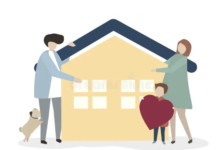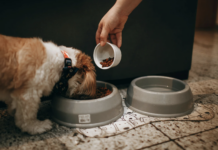Last Updated on April 10, 2024 by Dog Lover
How to Socialize Your Puppy: Tips and Best Practices for a Well-Adjusted Dog
Congratulations on welcoming a furry friend into your life! A new puppy brings endless cuddles, playful moments, and unconditional love.
But before your pup becomes a confident and well-adjusted canine companion, there’s an important step you can’t skip: socialization.
Think of socialization as your puppy’s passport to a world full of exciting experiences. It’s about introducing them to different sights, sounds, smells, people, and other animals in a positive and controlled way.
This crucial period in their development helps shape their personality and prevents them from becoming fearful or anxious later in life.
So, how do you navigate this socialization journey with your adorable (and possibly mischievous) pup?
Buckle up, pawrents, because we’re diving deep into everything you need to know!
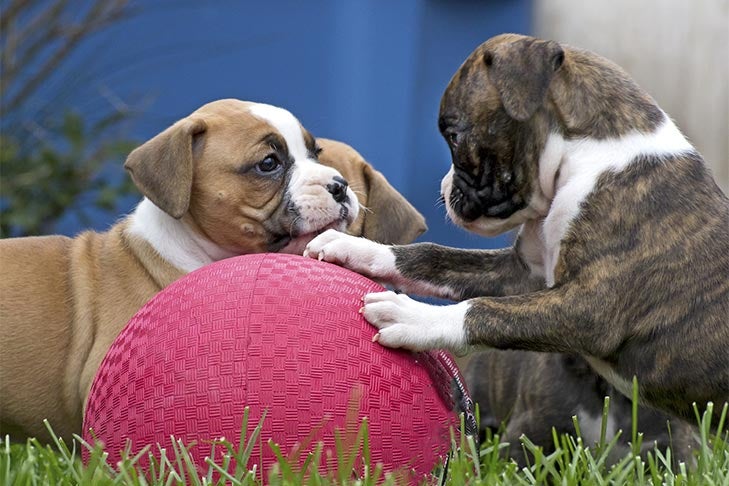
The Golden Window of Opportunity: Why Puppy Socialization Matters
The most critical time for socialization is between 3 and 12 weeks of age. This period is often referred to as the “socialization window”.
During this time, puppies are naturally more accepting of new experiences and less likely to develop fear-based behaviors. Consider it their prime time for learning about the world around them.
Here’s why socialization is so important:
- Builds Confidence: Positive interactions with different people and animals help your puppy feel secure and comfortable in various situations.
- Prevents Fear and Anxiety: Unsocialized puppies can become fearful of things they haven’t encountered before, leading to barking, lunging, or hiding.
- Enhances Trainability: A well-socialized puppy is more receptive to learning cues and commands, making training a breeze.
- Creates a Well-Adjusted Dog: Ultimately, socialization helps your furry friend become a happy, outgoing canine citizen who thrives in various social settings.

Let’s Get Social: Practical Tips for Socializing Your Puppy
Now that we understand the importance of socialization, let’s get down to the fun part – creating positive experiences for your pup!
Here are some practical tips to guide you:
1. Start Early and Keep it Positive
Remember the golden window? Don’t waste a single precious week! Begin socialization as soon as you bring your puppy home, even before they’re fully vaccinated.
Focus on creating positive associations with everything new they encounter.
2. Embrace the Power of Playdates
Playdates aren’t just for human kids! Scheduled puppy playdates are a fantastic way to introduce your pup to other dogs in a safe and controlled environment.
Look for well-socialized dogs of similar size and temperament for these initial interactions. A puppy park can also be a good option, but keep an eye on your pup and ensure they’re comfortable before letting them loose.
3. Make Friends with Strangers (Well, Kind Strangers)
Don’t be shy about introducing your puppy to new people of all ages and appearances. Encourage gentle petting and positive interactions.
This could involve asking friends and family to visit, or simply stopping strangers (who look approachable!) on your daily walks.
4. Hit the Town (or Park)!
Expose your puppy to the sights and sounds of the real world. Take them on car rides, visit pet-friendly stores, or stroll through a park (avoiding areas with high dog traffic until they’re fully vaccinated).
These everyday experiences can help them become desensitized to common noises and activities.
5. Don’t Forget the Non-Canine Crew
While canine companions are important, introducing your puppy to other friendly animals can also be beneficial.
This could involve supervised interactions with cats, hamsters, or even well-socialized farm animals (with their owner’s permission, of course!).
Remember: Always supervise your puppy during interactions with other animals and ensure both parties are comfortable.
6. Desensitization is Key
Some everyday occurrences can be scary for puppies – loud noises, vacuum cleaners, or even the mailman!
Gradually introduce these stimuli in a controlled way, pairing them with positive reinforcement like treats or praise.
7. Respect Your Puppy’s Limits
Don’t overwhelm your pup! Pay attention to their body language. Signs of stress or fear can include flattened ears, tucked tails, or whining.
If your puppy seems uncomfortable, take a break or change the environment.
8. Socialization is an Ongoing Process
While the critical window closes around 12 weeks, socialization doesn’t stop there.
Continue to expose your dog to new experiences throughout their life to maintain their confidence and well-adjusted personality.
9. Seek Help if Needed
If you’re facing challenges socializing your puppy, don’t hesitate to seek professional help.
A certified animal behaviorist or experienced dog trainer can provide valuable guidance and personalized strategies to address any specific concerns you might have.
Remember: Socialization is an investment in your furry friend’s future happiness and well-being.
By putting in the time and effort during this crucial period, you’re setting your pup up for a lifetime of positive social interactions and a fulfilling relationship with you.
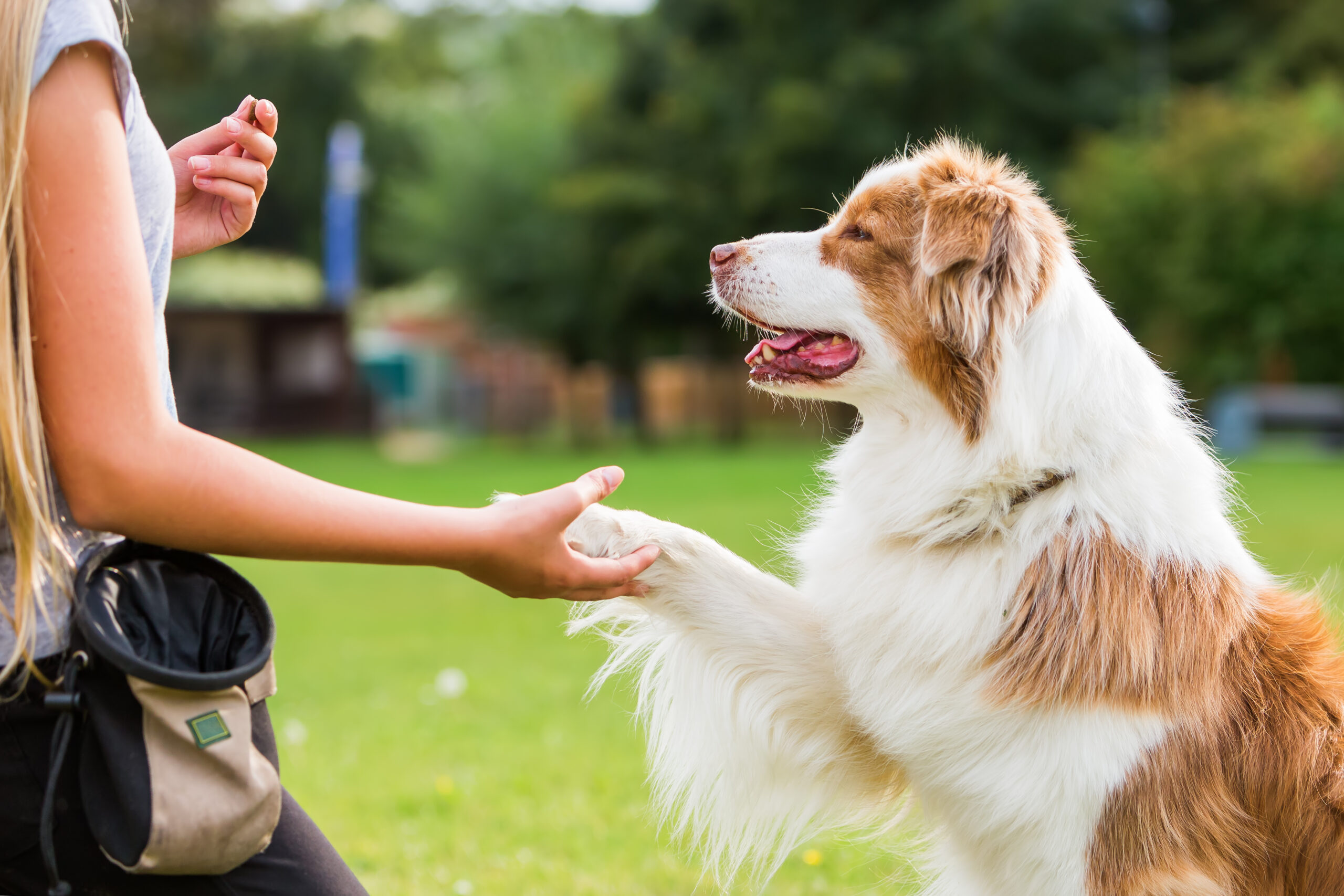
Beyond the Basics: Advanced Socialization Techniques
Now that you’ve mastered the essential socialization techniques, let’s explore some additional strategies to further enrich your puppy’s experiences:
10. Puppy Kindergarten
Enrolling your pup in a puppy kindergarten class is a fantastic way to jumpstart their socialization journey.
These classes provide a safe and controlled environment for puppies to interact with each other, learn basic commands, and get used to different people and situations.
Bonus Tip: Look for puppy kindergarten classes that utilize positive reinforcement training methods.
11. Novelty Walks
Instead of sticking to the same walking route every day, take your puppy on “novelty walks” to explore new neighborhoods, parks, or trails. This helps them become accustomed to different environments and stimuli.
12. The Power of Positive Reinforcement
Throughout the socialization process, make sure to reward your puppy for positive and calm behavior.
This could involve treats, praise, or their favorite toy. By associating new experiences with positive reinforcement, you encourage your pup to approach them with confidence.
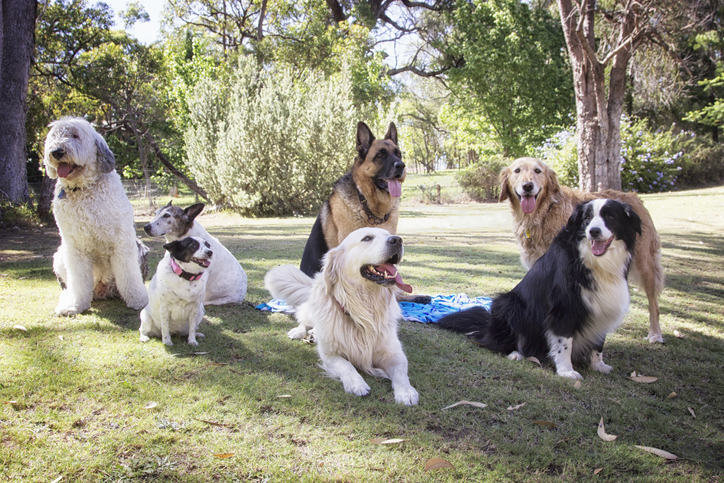
Conclusion: Building a Well-Socialized Pup
Socialization is a crucial step in raising a happy, confident, and well-adjusted canine companion.
By following these tips and creating positive experiences for your puppy, you’re laying the foundation for a lifetime of joyful adventures together.
Remember, a well-socialized dog is a joy to have around, enriching not just their life but yours as well.
Ready to embark on this exciting socialization journey with your furry friend? Grab your treats, leash, and adventurous spirit – it’s time to show your pup the world!
FAQs
What if my puppy isn’t fully vaccinated yet? Can they still be socialized?
Yes! While socialization is certainly easier once your puppy has received their full set of vaccinations, there are still ways to introduce them to new experiences safely. You can invite friends and family over for supervised playdates, carry your puppy in a stroller through busy areas, or practice desensitization techniques within your home environment.
My puppy seems scared of other dogs. What should I do?
Don’t force interactions! Focus on creating positive associations with other canines. Start by observing friendly dogs from a distance and rewarding your puppy for calm behavior. Gradually decrease the distance and introduce playdates with well-socialized dogs of similar size and temperament.
What if my puppy growls or barks at new people?
This could be a sign of fear or anxiety. Avoid punishing your pup, as this will only exacerbate the problem. Instead, consult a certified animal behaviorist or experienced dog trainer for guidance on desensitization techniques and positive reinforcement strategies to address their fear.
Is socialization important for all dog breeds?
Absolutely! While some breeds might be naturally more social than others, socialization is crucial for all dogs. It helps them become well-adjusted canine citizens who can navigate various social situations confidently.
How long should I continue socializing my dog?
Socialization is an ongoing process. While the critical window closes around 12 weeks, continue to expose your dog to new experiences throughout their life to maintain their confidence and well-adjusted personality. This could involve attending dog park meetups, trying new activities like agility training, or simply incorporating friendly greetings with people and dogs during your daily walks.
By following these tips and addressing any FAQs you might have, you’re well on your way to raising a happy, confident, and well-socialized dog!
Reference Links:
- The American Kennel Club (AKC) on Puppy Socialization: https://www.akc.org/expert-advice/training/puppy-socialization/
- The Society for Promoting Animal Welfare (SPAW) on Socialization: https://www.avma.org/resources-tools/animal-health-and-welfare/socialization-dogs-and-cats
- The American Veterinary Medical Association (AVMA) on Puppy Development: https://www.akc.org/expert-advice/training/puppy-growth-timeline-transitions-puppyhood/
- The Association of Professional Dog Trainers (APDT) on Positive Reinforcement Training: https://apdt.com/
- The American College of Veterinary Behaviorists (ACVB) on Finding a Certified Animal Behaviorist: https://www.dacvb.org/





